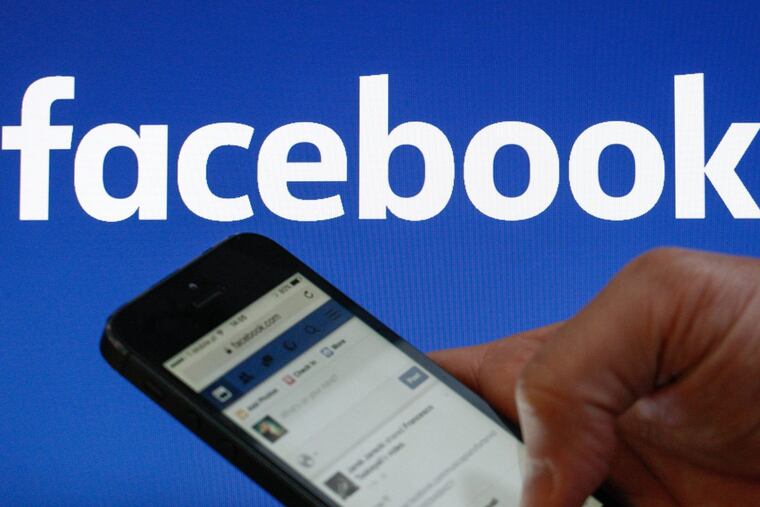To keep data private, frustrated Philly users delete Facebook
"It was like ripping a Band-Aid off."

Ellesia Blaque would really prefer if she didn't have to delete her Facebook account. The Philadelphia native uses the platform for social and political activism, and it's the only way she keeps in contact with an old professor with whom she's close.
But after learning Monday of secret data mining by Cambridge Analytica — the U.K. firm at the center of a data privacy scandal involving Facebook, Russia, and the election of President Trump — Blaque felt as if she had to shut down the profile she's held onto for more than a decade.
"It's an excellent forum to make positive change," said Blaque, 54, a professor at Kutztown University. "But at the same time, if there's something good, you can turn it into something evil."
Blaque is one of thousands of people who in the last several days have taken part in #DeleteFacebook, in which users livid about its most recent blunder are disabling certain functions or ditching their accounts. Facebook, which was already facing public scrutiny over Russian meddling in the 2016 U.S. presidential election, is now under fire after a whistle-blower told of how a firm tied to former presidential adviser Steve Bannon secretly harvested data from 50 million Facebook users.
Cambridge Analytica announced Tuesday that it had suspended its CEO — who was recorded by a British TV station offering to use bribes and sex to entrap politicians — though the company denies wrongdoing and says it didn't use the Facebook information it obtained.
Facebook's stock has taken a nosedive. While its top executives say there was no "data breach" because no systems were infiltrated, stolen, or hacked, many users are calling for Facebook to better protect users' data and publicly disclose how Cambridge Analytica was able to mine the information it did.
And so, the #DeleteFacebook hashtag was trending Wednesday on Twitter. It gained momentum Tuesday night when the founder of messaging app WhatsApp — which Facebook bought in 2014 — tweeted: "It is time. #deletefacebook."
#DeleteFacebook is the latest social-media-driven boycott of a company for political reasons. In January 2017, a movement to delete Uber started after the ride-hailing company was accused of trying to profit off protests at airports following Trump's executive order banning some refugees and immigrants. In the last several months, opponents of the National Rifle Association have boycotted companies associated with the gun lobbying group, causing some corporations to cut ties.
But Jennifer Herman of the city's West Mount Airy section said deleting her Facebook account Monday was less about politics and more about data security.
The "magnitude" of Cambridge Analytica's data mining was too great to continue with the social media platform she had used for a decade. So on Tuesday, she pulled the plug on it.
"It's not even a Trump thing," Herman, 42, said. "Data is data. And I didn't give permission for it to be used in that manner."
Deleting a Facebook account entirely is easier said than done. While the social media company allows for users to delete their accounts permanently, users have two weeks to change their mind. If they log in during that time, the waiting period starts over.
For Herman, just starting that lengthy process was relieving.
"It was like ripping a Band-Aid off," she said. "Finally, I made the decision, and I'm done with it. And I can be a spectator when it comes to Facebook."
Herman said she also stands to lose data with other apps or sites she's connected to through Facebook, like music streaming platform Spotify.
Colleen France of Westmont, Camden County, ran into a similar problem after she deleted her Facebook account — she tried to make a dinner reservation via Open Table and realized she had no idea what her password was. The only way she'd ever connected to it was through Facebook.
And — oh, right, she remembered — Facebook owns Instagram. France deleted that account, too, and said goodbye to the dogs she follows and the cooking videos she loves.
Still, she said, deleting her accounts was almost a no-brainer. She understood when she signed up for Facebook in 2008 that her data were being used so advertisers could target her, but she said she never agreed for it to be used to benefit a political candidate.
"It's one thing to manipulate my data input to make me buy a couch," she said. "It's another thing to manipulate something as sacred as our democracy."